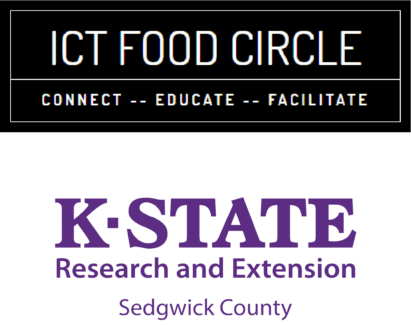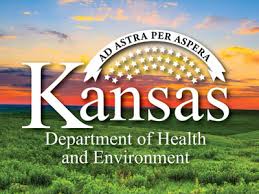The Health & Wellness Coalition is collaborating with K-State Research & Extension to revive the ICT Food Circle Directory thanks to the CDRR grant.
The Chronic Disease Risk Reduction (CDRR) Community Grant Program provides funding, training and technical assistance to communities to address chronic disease risk reduction through evidence-based strategies that impact tobacco use, physical activity and nutrition. The grant is administered statewide by the Kansas Department of Health & Environment.
Locally, the Health & Wellness Coalition is working on this nutrition workplan. A manual will be created for the iCT Food Circle Directory website and directory maintenance that establishes sustainability by KSRE staff. Other initiatives include:
- contacting current listings to confirm accuracy – expect an email by 12/6/24.
- recruiting new producers to list in the directory including those that serve priority populations.
- creating promotional materials to be used when the farmer’s markets open spring 2025 using the #ICTYourPlate logo.
The ICT Food Circle Directory provides a free way to connect commercial growers to those wanting to purchase local food supporting the local economy and ensuring access to high-quality, nutrient-rich foods.
This work coincides with the work of the Wichita/Sedgwick County Food and Farm Council. The Food System Master Plan (FSMP) was passed in January 2022 by the City Council and February 2022 by the County Commission. Having an up-to-date ICT Food Circle Directory will assist with Goal 1: Foster food system coordination and education, Objective 3: Support consumer education and awareness about the benefits of a resilient local food system, Action Step 2: Advertise the availability of local food in the community sharing existing local producer directories.
Goal three of the Food System Master Plan is to increase local food production, meaning more fruits, vegetables, etc. produced by local farmers or in gardens. The objectives and action steps in this goal are recommendations to increase the supply of local food through increased production, but also to support consumer demand and ensure that markets are available for local producers to sell to.
This work matters because a diet high in fruits and vegetables is associated with a decreased risk of heart disease and some forms of cancer. Because local foods are more nutritious, fresher and less processed, eating local foods is associated with better nutrition, obesity prevention and reduced risk of diet-related chronic disease. Unfortunately, adults in KS are falling short of recommendations. According to 2021 BRFSS data, nearly 18.5% of KS adults did not eat vegetables at least once per day, and more than 46.5% did not eat fruit at least once per day. Of KS adults with a household income less than $35,000, 24.7% did not eat vegetables daily and 48.9% did not eat fruit daily. Of KS adults without health insurance, 24.6% did not eat vegetables daily and 54.5% did not eat fruit daily.
Increasing access to physical activity opportunities and healthy food, and thereby decreasing the prevalence of chronic diseases, requires a coordinated and comprehensive approach that engages populations in identifying needs and solutions, works with and through diverse sectors and partners in the community, and implements policies, systems and environments supportive of healthy food and physical activity access, especially for underserved populations.
If you have questions, contact Shelley Rich shelleyrich@med-soc.org.

